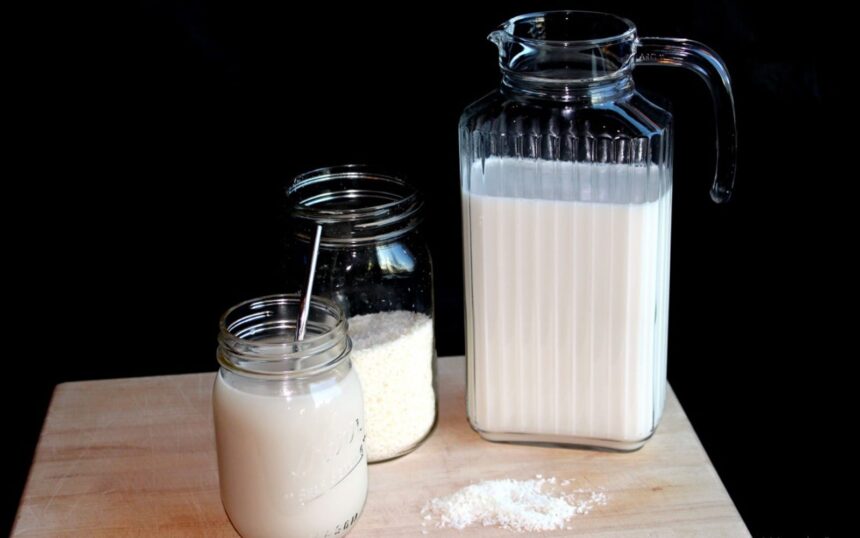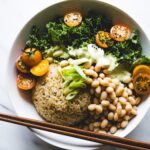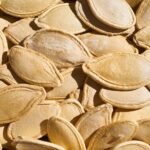If you’re a dairy-free eater, most likely, you ate dairy at some point in your life. Unless you had an allergy, it was likely a part of your childhood, something you never gave much thought to. Or maybe now, you’re just now becoming interested in the idea of consuming fewer animal products and contemplating other choices besides cow’s milk products.
Whatever the case, the decision to go dairy-free is a smart one, especially when we consider the negative health effects that dairy can bring, some of which we’re just now learning and others that we’ve known for years now. Lactose intolerance is something we’re all familiar with, but the effects that dairy can impose on our health go way beyond just a little stomach upset. Dairy’s protein is so highly concentrated, that over time, it has the potential to cause some health side effects that none of us want to experience.
Here are five reasons to avoid dairy:
1. Chronic Inflammation
Dairy is highly acidic, despite it containing high amounts of calcium that acts as an alkaline agent by nature. Milk is rich in natural acids that can cause calcium deposits to build up and potentially cause arthritis and long-term inflammation. It also doesn’t necessarily keep our bones strong as we once believed. Most plant-based foods do a much better job (such as chard, kale, almonds, figs) and don’t contribute to chronic inflammation.
2. Aging
Quite honestly, animal products just age the body, plain and simple. Think about how much work they have to go through to process the particles from another living being. No wonder they’re tired! Dairy is an especially poor choice since it’s one of the hardest to digest and one of the most well-studied in its relationship to cancer and disease. Raw (and even some cooked) fruits, vegetables, nuts, seeds, grains, beans, legumes, and healthy fats are a much better option. These foods all contain plant-based protein, along with vitamins and minerals that help in extending longevity and promote beautiful skin that ages slowly.
3. Poor Skin (and Internal Health)
As superficial as it might seem and as unimportant as it might be in the grand scheme, your skin’s health is just as important as any other aspect of your health. Why? Because it shows how healthy the inside of your body is. Your skin is the largest organ on your body and whatever the internal body can’t get rid of, the skin will try to do so itself. This is especially true when it comes to the liver and digestive system having a hard time with internal wastes that can’t be properly removed. When you consume too much (or for some people, even a little) dairy, the skin usually takes a major hit. You’ll see this through acne, redness, splotchy, or just lackluster skin. Many people notice huge improvements to their skin the first few days without dairy. This is because the inside of the body is better able to clean itself out and the skin isn’t left to do all the work itself.
4. Chronic Digestive Problems
Aside from a little lactose, dairy can also cause some gut damage due to the way it inflames the gut lining. It’s one of the worst to cause and irritate leaky gut syndrome, which can lead to autoimmune disease and other health issues over time. Then there’s the digestive disturbances along the way such as bloating, constipation, diarrhea, or even long-term IBS. Many people who suffer from more serious disorders such as Crohn’s disease find that once they ditch dairy, healing naturally begins. Others just find their systems work much better without dairy. After all, let’s remember that outside of the fancy cartons and marketing, that dairy is basically just a COW’s mammary liquid produced after being pregnant – do you think your stomach really wants to deal with that!?
5. Cancer Risks
What’s even worse than digestive disorders is the way dairy contributes to cancer. It’s been found to be a leading cause and contributor to prostate, breast, testicular, and colon cancer. Dairy is not a health food and one can’t be certain how much is too much and how much is okay. Why risk it, we ask? Don’t ignore your health and pretend the little signs don’t matter. They could be the one thing your body is using to tell you that you’re dealing with a more serious health issue. A plant-based diet, free from dairy, has been found one of the best to prevent cancer and other forms of disease.
If you’re looking to #DitchDairy, then see some more of our Ditch Dairy posts for further inspiration and pick yourself up a carton of non-dairy milk, yogurt, and even a container of non-dairy ice cream this week!
Related Content:
Easy Ways to Help the Planet:
- Eat Less Meat: Download Food Monster, the largest plant-based Recipe app on the App Store, to help reduce your environmental footprint, save animals and get healthy. You can also buy a hard or soft copy of our favorite vegan cookbooks.
- Adopt-a-Pet: Visit WildWatchers, a watchdog platform specifically designed for animal, earth, and wildlife warriors to actively give back, rescue, and protect animals and the planet.
- Reduce Your Fast Fashion Footprint: Take initiative by standing up against fast fashion Pollution and supporting sustainable and circular brands like Tiny Rescue that raise awareness around important issues through recycled zero-waste clothing designed to be returned and remade repeatedly.
- Support Independent Media: Being publicly funded gives us a greater chance to continue providing high-quality content. Please consider supporting us by donating!
- Sign a Petition: Your voice matters! Help turn petitions into victories by signing the latest list of must-sign petitions to help people, animals, and the planet.
- Stay Informed: Keep up with the latest news and important stories involving animals, the environment, sustainable living, food, health, and human interest topics by subscribing to our newsletter!
- Do What You Can: Reduce waste, plant trees, eat local, travel responsibly, reuse stuff, say no to single-use plastics, recycle, vote smart, switch to cold water laundry, divest from fossil fuels, save water, shop wisely, Donate if you can, grow your food, volunteer, conserve energy, compost, and don’t forget about the microplastics and microbeads lurking in common household and personal care products!









